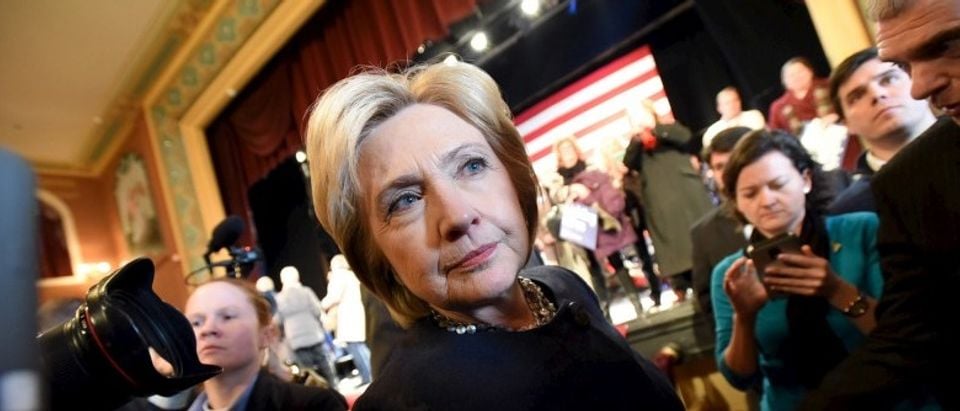The most complex of Hillary Clinton’s 52,000-plus pages of work-related emails have yet to be released, lawyers for the Justice Department indicated in papers filed in federal court late Thursday.
“The order in which State released emails was based largely on the complexity of the necessary review process,” reads the motion, which government attorneys filed with U.S. District Court Judge Rudolph Contreras.
The lawyers are asking Contreras to approve a month-long extension for the release of the last remaining batch of Clinton emails in response to a Freedom of Information Act lawsuit filed by Vice News’ Jason Leopold.
In a filing submitted last week, government lawyers said the State Department would be unable to meet a court-imposed Jan. 29 deadline for the release of the remaining Clinton records because it overlooked approximately 7,000 emails that required review from other federal agencies.
And while the government says that it discovered the overlooked email three weeks ago, it only completed the delivery of the emails needed for interagency review on Jan. 25, blaming a snow storm that crippled most of Washington, D.C. The lawyers stated that some of the remaining 9,000 Clinton emails will be released on Friday but asked to be allowed to release the rest on Feb. 29.
Leopold’s attorneys argued against the request, noting that voters in early primary and caucus states will be deprived of all of the information from Clinton’s emails when they cast their ballots throughout February. Leopold’s lawyers also argued that the remaining Clinton emails are likely among the most controversial of the trove. VIDEO: State Department Hints At Investigation Into Hillary’s Blackberry Decision
The government’s lawyers denied that the emails were any more controversial than the 43,000 pages of emails released so far. But they did acknowledge the complexity of the remaining records, raising questions over whether they will contain more classified information than other releases or the smoking gun that many have speculated exists in the Clinton documents.
“Most of the documents released early in the process were those that required no interagency consultation,” the court filing reads. “State next released, in general, those documents that only required consultation with one or two agencies. The remaining emails include many that required consultation with multiple agencies, but that does not mean that these emails are more ‘controversial’ than other emails, or that the oversight that led to them not being sent to all the necessary agencies was related to their substance.”
So far, more than 1,300 Clinton emails have been retroactively classified. The intelligence community has deemed several others to have contained highly classified information when they were originated, undermining Clinton’s claims that she did not send or receive classified information on her personal email account.
Ryan James, Leopold’s attorney, responded to the government’s latest plea by accusing it of “giving a big middle finger” to early primary and caucus voters and of failing to explain why it did not immediately turn the 7,000 overlooked emails it found earlier this month to the other federal agencies that needed to review them.
“The State Department admits the mistakes were discovered three weeks ago, but fails to explain why the lost records weren’t sent to these agencies the very next day, and how, some still haven’t received the records,” James said in a statement. “It’s astounding, and shows little regard for the democratic principal that people are entitled to information about their government before they are asked to decide who should run it, not after.”
“In an era where it is legally uncertain whether official data on a private server or non-government account is subject to public scrutiny, it may be that the only lesson for future aspirants to high office is that while there might not be legal consequences, there might be political ones,” he added.


